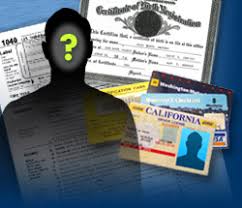 Just recently one big pharmaceutical company was fined 1.2 billion dollars for failing to disclose possible serious side effects of one of their FDA-approved drugs. Some companies take these fines in stride as the cost of doing business. Other potential employers realize that there are risks of employing someone from a company who repeatedly breaks the law. Think hard about how one of these companies will look on your resume before you accept a job.
Just recently one big pharmaceutical company was fined 1.2 billion dollars for failing to disclose possible serious side effects of one of their FDA-approved drugs. Some companies take these fines in stride as the cost of doing business. Other potential employers realize that there are risks of employing someone from a company who repeatedly breaks the law. Think hard about how one of these companies will look on your resume before you accept a job.
Protect your professional reputation. You are a perceived liability to future employers when you work at a company with major infractions – so major that they are paying out big dollars in fines. If the company thinks it’s okay to do business this way, then you as their employee may be perceived as someone who bends or breaks the law at work, when in reality you actually are a very ethical employee. But today’s employers are not only concerned with what you do on the job, they also want to ensure that their employees represent them well outside of the workplace.
While many people feel that their personal and professional lives should be separate, in today’s social media-saturated world, what you do outside of work could also affect your chances of being hired for a new job. The recent rash of people faking their educational credentials on their resumes has employers doing full background checks, not just on educational credentials, but credit checks, Department of Motor Vehicles checks, drug screenings and anything else that can turn up infractions or crimes.
Your best option if you have DUI’s on your record, or if you have served jail time, is to admit to it up front on a background check. You may still be able to work for the company that wishes to hire you, especially if you will not be driving or handling money or other valuables while on the job. However, the best way to protect your reputation is to not engage in any behavior that will disqualify you on a background check in the first place.
Background Checks and Candidate Research– Hype or a Reality?
For the last few years we’ve been hearing more and more about celebrities or high-powered executives being publicly cast as liars after being caught lying on a resume. Why did these people do it? Didn’t they know they would get caught? Well, probably hoping they wouldn’t be discovered, and “back then” we didn’t have the internet and other public information at our fingertips.
This leads me to another related topic.… being aware of our actions. For example: a picture of you marching down a main street protesting a political party, or posting a picture of yourself for your friends to see of you chug-a-lugging it at a football game, might seem okay or fun to you, but casts a shadow of doubt to the hiring person. They want to know, are you the candidate for them? I’ve had to tell a few clients to use a different email address because, on a hunch, I did a search on the email address and pulled up 2-3 pages of links to a few different blogs and message boards all containing controversial topics not at all suitable for an employer to read in a potential candidate.
Most checks are for criminal records or education verification, driving records, credential verification, sex offender registry, reference checks, Patriot Act search and credit reports. Some employers use several different kind of checks while most use one kind and look for extremely bad reports.
While it may seem like a scary inconvenience for the employees trying to get a job, they might want to keep in mind that a search on potential employees might just benefit not only the company itself but also the current employees in the long run.
Food for thought…

